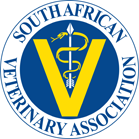Original Research
After-hours equine emergency admissions at a university referral hospital (1998 - 2007) : causes and interventions
Journal of the South African Veterinary Association | Vol 80, No 3 | a196 |
DOI: https://doi.org/10.4102/jsava.v80i3.196
| © 2009 A. Viljoen, M.N. Saulez, C.M. Donnellan, L. Bester, B. Gummow
| This work is licensed under CC Attribution 4.0
Submitted: 23 May 2009 | Published: 23 May 2009
Submitted: 23 May 2009 | Published: 23 May 2009
About the author(s)
A. Viljoen,M.N. Saulez,
C.M. Donnellan,
L. Bester,
B. Gummow,
Full Text:
PDF (465KB)Abstract
Medical records of equine after-hours admissions from 1998 to 2007 are reviewed. Data extracted from the medical records included signalment, reason for admission, pre-admission treatment, clinical presentation, procedures performed, final diagnoses, complications occurring in hospital, length of stay and outcome. Eight hundred and twenty after-hours admissions were available of which 75 % were classified as emergencies. Most horses originated from Gauteng province (82 %), with Thoroughbred, Arabian, and Warmbloods representing 46 %, 10 % and 7 % of horses. Horses had a median age of 7 years and were predominantly male (60 %). Gastrointestinal (64 %) and musculoskeletal (19 %) disorders were the primary reasons for admission. Anti-inflammatories, sedation and antibiotics were given in 51 %, 20 % and 15 % of cases respectively prior to referral. On admission, 23 % of horses had surgical intervention. Intravenous catheterisation (64 %), rectal examination (61 %), nasogastric intubation (56 %), abdominocentesis (33 %) and ultrasonography (19 %) were the procedures performed most frequently. Surgical and medical colics constituted 28 % and 27 % respectively of the overall diagnoses, while piroplasmosis was diagnosed in 5 % of horses. Post-admission complications occurred in <2 % of horses. The median length of stay was 4 days (95 % CI: 1 to 21 days). Overall survival to discharge was 74 %. This study demonstrates that the majority of after-hours equine admissions to a university referral hospital required medical intervention and were mostly due to gastrointestinal disorders. Information obtained from this study can be used in emergency referral planning.
Keywords
emergency medicine; equine hospital; gastrointestinal; musculoskeletal; piroplasmosis; ultrasonography
Metrics
Total abstract views: 2931Total article views: 2188
Crossref Citations
1. Long-term outcome after colic surgery: retrospective study of 106 horses in the USA (2014–2021)
Lisbeth B. Matthews, Macarena Sanz, Debra C. Sellon
Frontiers in Veterinary Science vol: 10 year: 2023
doi: 10.3389/fvets.2023.1235198
